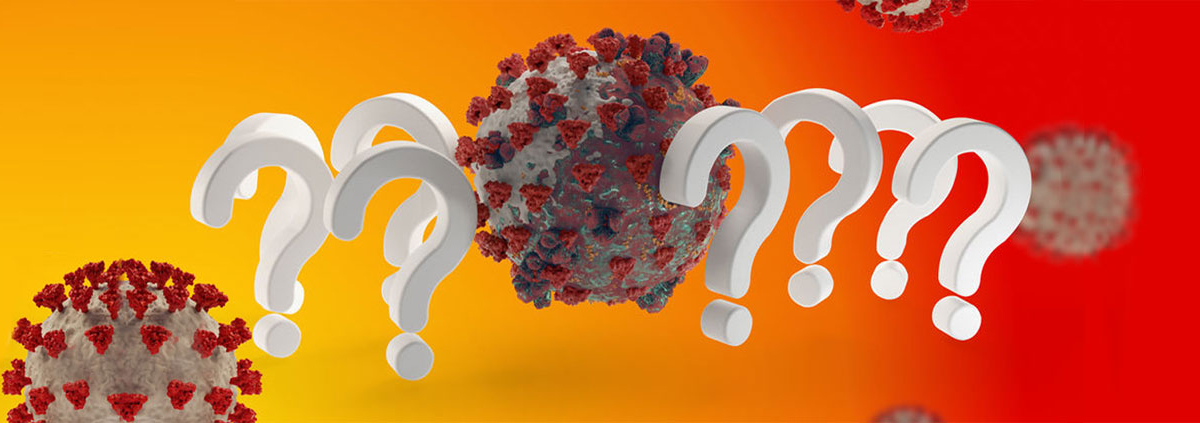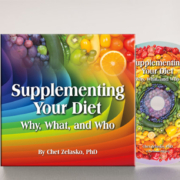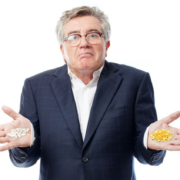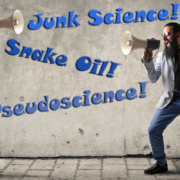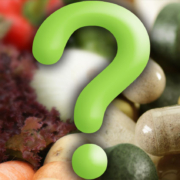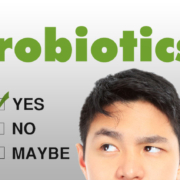COVID-19: What We Don’t Know
I’m sure you’ve heard the expression “What we don’t know could kill us” and that’s truer today than at any other time. While we may argue about masks and social distancing, there’s just still too much we don’t know about the novel coronavirus. The critical factor is that because of what we don’t know, we aren’t able to work on treatments that can be administered to more people sooner once they’ve been diagnosed.
The Microbiome
You’ve heard me repeatedly say that the immune system starts in the gut; I don’t think many healthcare professionals would debate that anymore. That’s why knowing how the microbiome deals with COVID-19 is critical to establishing prevention and treatment programs. I don’t mean preventing people from catching the virus—I mean preventing them from getting a very serious form of the infection that results in hospitalization and severe treatments such as intubation and respirators.
We know that the digestive system is full of ACE2 receptors as I’ve written about before. What we don’t know is how to specifically make the microbiome more robust. What specific foods should we eat? What specific strains of microbes should we ingest to help immune function?
If we should eat more vegetables, should they be raw or can they be cooked? There are 6,500 different microbes that we know of at this point with multiple strains; if we’re supposed to take specific microbes, which strains are the most effective? We just don’t know enough to make our personal immune system stronger. We should still do the things that we’re doing by eating more vegetables, taking fiber and probiotics, but we could do better if we had more specific information.
Genotype and Phenotype
We know that age is a risk factor for a serious case of COVID-19; we also know that conditions such as heart disease, hypertension, and type 2 diabetes are also associated with a serious COVID-19 infection. And that’s about it for right now. Let me give you three questions that may or may not be important but certainly have to be checked out.
Does race have an effect? In addition to the observations about co-morbidities and healthcare opportunities, there may be some impact related to race that hasn’t been examined yet. Or instead of race, maybe it’s ethnicity. Think about it; from an ethnic perspective, what was different between the people of Italy and Spain, where there were significant deaths, from those who lived in Norway and Denmark? What about male pattern baldness? What about familial hypercholesterolemia? Could either of those be a genetic risk factor?
What about phenotype? Are people who are ex-smokers at greater risk than those who never smoked? We would think so, but nobody’s studied it. What about people who’ve lost a significant amount of weight and maintained it? What about people who exercise regularly compared to those who never exercise? All those traits would be associated with a healthier lifestyle, but we haven’t tested their impact of the risk of COVID-19. Lifestyle can impact the expression of your genes. And in some ways, once genes are expressed or turned on, they may not be downregulated or turned off. That could be important.
Do supplements help? It’s easy to say massive amounts of vitamin C and vitamin D and turmeric will help, but do they help everyone? What if you already have adequate vitamin D levels? Could adding even more be counterproductive? The same is true for vitamin C. We know that vitamin C is an antioxidant, but in high quantities, it may act as a pro-oxidant and increase free radical damage. How much is the right amount? Think of all of the supplements that we all take. It would be nice to know which are the key supplements to help our immune function against this virus and which ones just help our bodies in our day-to-day activities. At this point, we don’t have enough information.
Better Treatments
The whole point of treatments for COVID-19 is to force the virus to back off long enough to allow the immune system to do its job. There are no medications that I’m aware of that can target the virus and kill it; that means it’s up to the body to do the killing, and even after a vaccine is available, that will still be the case. We need better treatments that can neutralize the impact the virus has on the body so that the immune system can, in effect, clean up the mess.
There have been a lot of debates about some medications such as hydroxychloroquine. There are hopeful additions that include steroids, although they have issues as well. We may even find out that specific types of diets including fasting may be beneficial. Or they may be disastrous. We need more research to find better treatments, and we need that research now.
As it relates to a vaccine, we really don’t know if there ever will be one or how effective it will be. Even if one is developed, the logistics are just incredible. How are we going to get 330 million doses of a vaccine ready for administration when we still don’t have enough tests available or enough gloves and masks for healthcare workers? Early testing means early treatment. But if you can’t test people to begin with, and you can’t get the results to them quickly, using better treatments could end up being too little too late for any given individual.
The Bottom Line
The novel coronavirus will be with us for a while longer. Maybe indefinitely. As I wrote a couple months ago, we don’t have to fear it; we have to respect it. Your job is simple: take care of your body the best that you can with diet, exercise, supplements, and reducing stress. If you’re going to venture out of your home, wear a mask, social distance, and wash your hands frequently. That’s our job. And know that there are people who will keep trying to find the answers we need and still more people who will help us if we get sick. We can give them time to work and lighten their load if we do our part.
What are you prepared to do today?

